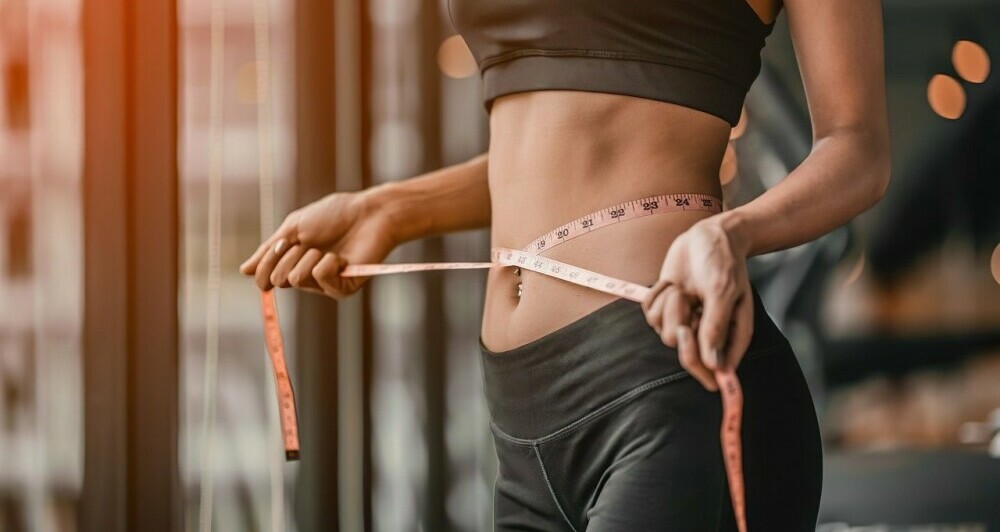I’d like to start by acknowledging something important: the idea of losing weight quickly is very appealing. I understand the frustration of wanting to see immediate results when you look in the mirror. It’s not just about shedding pounds; it’s also about gaining confidence and feeling better in your skin.
We’ll explore why quick-fix diets are so tempting and the psychological reasons behind that urge. People often crave instant gratification, especially when dealing with something as challenging as weight loss. However, this haste can sometimes lead us down a risky path. Rapid weight changes can come at a cost, such as potential nutritional deficiencies and a return to old habits.
In my opinion, an important aspect of fast weight loss that people tend to overlook is sustainability. How long can you maintain a strict diet without it taking an emotional or physical toll? There’s a lot to gain from a measured approach that emphasizes gradual change.
As we move forward, we’ll take a closer look at various diet plans. You’ll see the differences between popular diets and what each could mean for someone who is just starting their weight loss journey. Remember, your first attempt doesn’t need to be your last. It’s all about gathering information, trying out what fits your lifestyle, and not worrying too much about perfection.
Assessing Diet Plans: A Comparative Look
Navigating the world of fast weight loss diets can be overwhelming. There are so many options promising rapid results. In this section, I’ll lay everything out on the table so you can make an educated choice about which might work for you.
You’ve likely heard of a few popular diets: Keto, Intermittent Fasting, and Paleo. These diets have become popular due to their claims of quick weight loss. Let’s start with Keto. It’s a low-carb, high-fat diet that puts your body into ketosis to burn fat for fuel. Many people experience rapid weight loss, but it’s important to consider that initial weight loss can be mostly water weight.
Intermittent Fasting isn’t so much a diet as it is a pattern of eating. It involves cycles of eating and fasting, focusing on when to eat rather than what to eat. This approach is supposed to create a calorie deficit, leading to weight loss. However, the strict eating schedule may not work for everyone.
Now, let’s talk about Paleo. This diet is based on eating foods similar to what our ancient ancestors consumed. It emphasizes fruits, vegetables, lean meats, and avoids processed foods. While it promotes whole foods, it can be restrictive, and the exclusion of certain food groups may not be the best for long-term health.
I’ve researched numerous studies and expert opinions to provide you with the details. These diets can be effective, and there’s plenty of evidence to support their claims. However, they also have drawbacks. Keto may lead to nutrient deficiencies, Intermittent Fasting can disrupt social eating patterns, and Paleo may be expensive.
For both men and women, it’s important to find a diet that’s sustainable in the long run. It’s not just about quick weight loss, but about finding balance to ensure your body gets the nutrients it needs while working towards your weight loss goals.
Choosing a diet is not the only factor to consider. In the next section, we’ll discuss supplements, particularly their relation to belly fat. Are supplements a secret weapon in pill form, or are they just smoke and mirrors? We’ll explore how supplements can either aid or add confusion to weight loss efforts.
Supplements and Belly Fat: An Aid or a Hype?
Now, let’s shift gears to a topic that’s often cloaked in mystery and debate: supplements. I’m not going to mince words here; everyone wants to know if there’s a magic pill for belly fat. Guess what? There isn’t. But this doesn’t mean all supplements are just smoke and mirrors. There’s substantial ground to cover on how the right supplements, when paired with diet and exercise, can potentially aid in your fight against belly fat.
I’m here to help you sift through the hype and get straight to the facts. It’s vital to recognize that no supplement can outperform a poor diet or lack of exercise. But, when you’re already making healthier choices, certain supplements could give you an edge. For example, green tea extract is known for its metabolism-boosting properties, and protein powders can be beneficial in managing hunger and maintaining muscle mass.
That said, it’s paramount to choose supplements with a strong backing of scientific evidence, as well as genuine testimonials. I always suggest scrutinizing the labels and researching brands before committing. Look out for products with transparent ingredient lists and that have undergone third-party testing for quality assurance.
Sure, the world of supplements is a crowded one, and finding genuine products can feel like finding a needle in a haystack. But don’t let that discourage you. On the contrary, I encourage you to educate yourself and be selective. And if you’re curious about diving deeper into what supplements can do for you, why not check out the link provided? It’s a resource I’ve found incredibly useful, and it could be the stepping stone to a more comprehensive weight management plan.
Closing this chapter on supplements, remember that they can be a component, but not the cornerstone, of your weight loss efforts. Against the backdrop of a balanced diet and regular exercise, the right supplements could accelerate your results responsibly. So, with that understanding, let’s move forward to the next section, where you’ll get access to practical takeaways that you can start using today to get on track with your weight loss goals.
Practical Takeaways for Your Weight Loss Journey
You’ve waded through the dense forest of diet plans, and you’ve explored the potential shortcut that supplements can offer. Now, I’m here to arm you with a strategic map to navigate your way toward effective and sustainable weight loss.
First and foremost, remember that you’re not alone in this journey. Many have walked this path and found success, and you can too. Choose something that resonates with you, your lifestyle, and your body’s needs. Whether it’s a balanced approach to dieting or a structured plan like Keto or Intermittent Fasting, consistency is your best friend.
You can always tweak your approach down the road. If a diet feels overly restrictive, or a supplement doesn’t sit well with you, don’t be afraid to adjust. What works splendidly for one person might only work moderately for another. Keep an eye on how your body responds, and stay flexible.
Beyond the diet itself, focus on building sustainable habits—regular physical activity, adequate hydration, and sufficient sleep are pillars that support any weight loss endeavour. And don’t worry too much about the number on the scale every single day. Weight loss is a marathon, not a sprint, and those numbers will fluctuate as part of the process.
Remember, your first attempt doesn’t need to be your last. It’s not about perfection; it’s about progression. Celebrate every small victory, because each one is a step towards your goal.
If you want to continue expanding your knowledge and find more resources, I encourage you to click the link provided. Doing so will offer more insights and support on your weight loss journey.
In conclusion, the best fast weight loss diet plan is the one you can stick to without feeling miserable. It’s about finding the right balance that works for you, and sometimes, that takes a bit of trial and error. I hope that you find this guide helpful and that it’s given you some clear steps to follow and sure footing for the path ahead.
For more insight about watch loss watch this video:
Disclaimer: This post contains affiliate links. If you make a purchase through these links, I may earn a commission at no extra cost to you.
When it comes to health, accurate information is crucial. That’s why it’s important to rely on official government websites like Canada’s Public Health Agency (www.canada.ca/en/public-health), HSE (Ireland) (www.hse.ie), NHS (UK) (www.nhs.uk), or CDC (US) (www.cdc.gov), and https://www.who.int/ These trusted sources provide up-to-date, expert-verified advice on vaccines, disease prevention, and public health updates. Avoid misinformation by skipping questionable posts or unverified blogs. Instead, check these official sites—they’re designed to keep you informed and prioritize your health and safety.
Don’t miss our article: “Belly Fat Burning Exercises” If you’ve ever felt like your health journey is an uphill battle, this one’s for you. Packed with practical tips and real stories of perseverance, it’s all about embracing your challenges and turning them into stepping stones for success. Ready to feel inspired and empowered?
Comprehensive Keto Diet Menu for All Palates



I battled with weight issues all my life until I started Intermittent fasting, which, as you rightly say, is not a diet but a way of life. It works for me; I don’t eat for 18 hours and then have a 6-hour eating window. This is sustainable for me I am retired and work from home. I also like home-cooked food, so it allows me the freedom to cook what I want in those 6 hours. You can eat anything you want in the eating window. The science behind it says the 18 hours you don’t eat gives your body the time to heal, repair itself, and digest whatever you eat. it works for me, and I have dropped three dress sizes. However, I do it all the time as it seems to stop me from wanting unhealthy food. So my diet has cleaned up as well
That’s amazing to hear! It sounds like you’ve found a routine that fits well with your lifestyle and brings you great results. Intermittent fasting can be such a powerful tool, especially when it aligns with personal preferences and habits, like enjoying home-cooked meals. The fact that you’ve dropped three dress sizes is impressive and speaks to how well this approach works for you. It’s also great to hear that it’s helped you naturally gravitate towards healthier food choices. Your experience perfectly exemplifies how sustainable habits can lead to long-term success. Keep up the fantastic work!
Regards,
Live Healthy Team